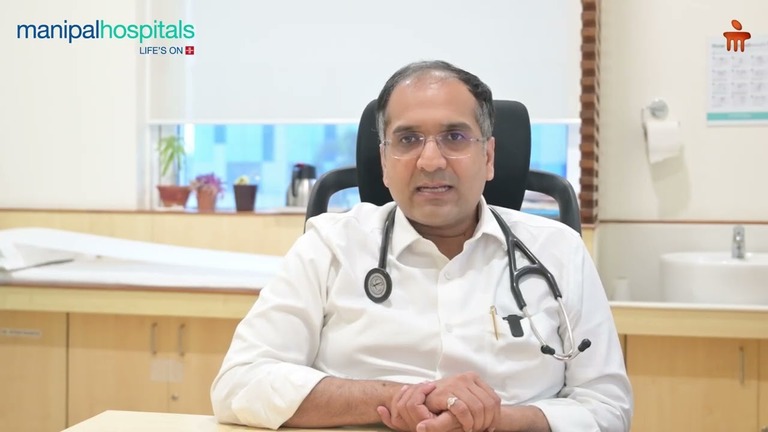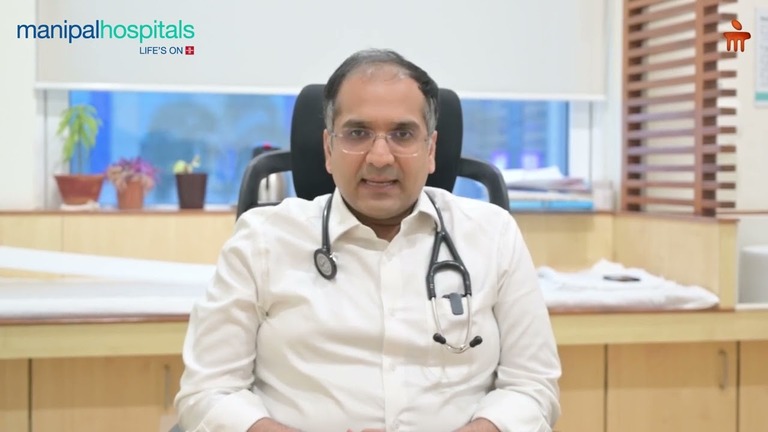
Top 10 Foods That Can Cause Kidney Stones

Dr. Ritesh Kauntia

7 Min Read
Mar 10, 2025

Book Appointments & Health Checkup Packages

Book Appointments & Health Checkup Packages





















At Manipal Hospitals in Mukundapur, Kolkata, we understand the importance of healthy kidneys and the impact they have on your overall well-being. Our Nephrology Department is dedicated to providing comprehensive care for a wide range of kidney-related conditions. Whether you are seeking preventive care, diagnosis, or advanced treatment for a kidney disorder, you can trust our team of highly skilled and experienced nephrologists to guide you through every step of the process. Consult our Best Kidney/Nephrology Hospital in Kolkata if you need treatment and care for kidney issues.

Our Nephrology Department at Manipal Hospitals is committed to offering complete care for kidney-related disorders. We provide early detection, diagnosis, and treatment alternatives, including Kidney Transplantation and Dialysis. Personalised treatment plans that cater to the specific requirements and preferences of each patient are provided by our board-certified nephrologists, renal dietitians, and specialised nurses using cutting-edge technology.
We use an interdisciplinary approach and collaborate closely with other experts to provide patients with complicated medical needs with complete medical services. Our team focuses on kidney health prevention and teaches patients how to manage other conditions as well as chronic kidney disease. Your comfort and safety are our top priorities, and we strive to provide compassionate care for optimal outcomes.
A kidney biopsy involves taking one or more tiny samples of your kidney to look at with special microscopes.
Hemodialysis is a life-sustaining treatment for individuals with kidney failure, including acute kidney injury (AKI) and chronic kidney disease (CKD). It involves filtering the blood through a dialysis machine to remove excess water, solutes, and toxins while maintaining homeostasis. Hemodialysis may be a temporary measure for AKI or a long-term treatment…
Transplant medicine is dedicated to organ and tissue transplantation. In addition to ensuring compatibility, avoiding rejection, and handling complications, it also involves managing patients before, during, and following transplantation. Kidney, liver, heart, lung, and bone marrow transplants are important aspects of care in Transplant Medicine. It…
Sometimes it is impossible to find a compatible kidney donor. With urgency mounting, emergency cases may require an ABO incompatible kidney transplant.
The advancement in diagnostic techniques makes it easier to diagnose various diseases promptly, even complex ones. Renal Biopsy is an advanced diagnostic procedure in which a small sample of kidney tissue is obtained for microscopic examination at the lab. This biopsy is not only done to detect cancer, as usually thought. They are done as they provide…
A Kidney Transplant is a surgical procedure used to replace a damaged kidney with a healthy donor kidney. The kidney can come from a living donor or a deceased organ donor. It may be possible for family members or other suitable candidates to donate one of their kidneys. We refer to this kind of transplant as a "living transplant."
Continuous Renal Replacement Therapy (CCRT) is a 24-hour dialysis therapy. It is used in patients suffering from fluid overload and acute kidney injury (AKI). Symptoms usually shown by children requiring CRRT include puffy or swollen faces and lab tests that show increased levels of waste products. CRRT functions in place of healthy kidneys and gently…
A Donor Nephrectomy involves surgically removing a healthy kidney from a living donor for transplantation into someone with kidney failure, offering them a chance to regain kidney function and potentially avoid Dialysis. Compared to Dialysis, which filters waste from the blood using machines or peritoneal methods, Kidney Transplantation is preferred…
Critical Care Nephrology is a specialised unit that provides intensive care for patients with severe renal diseases, particularly those needing close monitoring and treatment for complicated urinary tract infections, prostate problems, or cancer. Our expert nephrologists are specialists who manage kidney disorders such as kidney failure, kidney stones,…

At Manipal Hospitals, our Nephrology Department is committed to providing exceptional care for kidney-related health conditions. We focus on diagnosing and treating a wide range of conditions, including chronic kidney disease (CKD), acute kidney injury (AKI), kidney stones, glomerulonephritis, polycystic kidney disease, hypertension, and electrolyte imbalances.
We employ advanced diagnostic tools and techniques to accurately assess and monitor kidney function. These include state-of-the-art imaging such as ultrasound, CT scans, and MRI, as well as lab tests and biopsies. To treat kidney disorders, our team employs the most recent surgical and medical procedures, such as Kidney Transplantation, Hemodialysis, and Peritoneal Dialysis.
We use a team approach, working with other medical specialities like urology, cardiology, and endocrinology to provide complete care for patients with complex needs. We focus on keeping kidneys healthy and improving quality of life through patient education and prevention.
Our Nephrology Department provides cutting-edge techniques and individualised care catered to your specific needs, whether you are looking for a kidney-related diagnosis, treatment, or long-term management.

Our Nephrology Department treats a wide range of kidney-related conditions, including but not limited to:
We offer a variety of diagnostic tests to assess kidney function and health, including:
Our department offers a full range of treatments, including:
Dialysis is a treatment for kidney failure that involves removing waste and excess fluids from your blood. There are two main types of dialysis:
Hemodialysis: A machine that filters blood outside of the body. Treatments occur at a dialysis centre several times a week.
Peritoneal Dialysis: A catheter is inserted into your abdomen to filter your blood using the lining of your abdomen as a membrane. This can often be done at home.
Kidney Transplantation is a surgical procedure where a healthy kidney is transplanted into a patient with end-stage renal disease. Candidates for transplantation usually have advanced kidney failure and need to meet specific medical criteria.
Both Dialysis and Kidney Transplantation come with potential risks. Hemodialysis may cause complications such as low blood pressure or infections, while Peritoneal Dialysis can lead to peritonitis. Kidney Transplantation may result in rejection, infection, or other complications. Your nephrologist will discuss these risks with you and work to minimise them.
Laparoscopic Donor Nephrectomy is a minimally invasive surgical procedure used to remove a healthy kidney from a living donor for transplantation. This advanced technique is often preferred over traditional open surgery due to its numerous benefits for the donor, including reduced pain, smaller incisions, quicker recovery, and shorter hospital stays.
During the Laparoscopic Donor Nephrectomy procedure, the surgeon makes several small incisions in the donor's abdomen and uses specialised instruments and a laparoscope (a thin, lighted tube with a camera) to perform the surgery. The surgeon carefully detaches the kidney from surrounding structures and blood vessels, then removes it through one of the small incisions.
To keep your kidneys healthy, we recommend:
A Kidney Biopsy is a procedure to obtain a small sample of kidney tissue for examination. It is usually performed under local anaesthesia with imaging guidance. You may feel some discomfort during the procedure, but it is generally safe and quick.
A Kidney Biopsy is carried out to identify kidney diseases, track the development of long-term kidney disorders, examine kidney damage, assess the condition of a kidney transplant, and look into unknown kidney problems, such as decreased kidney function, proteinuria, or hematuria. Important information is provided by the procedure to help with treatment decision-making.
If you have persistent symptoms such as blood in your urine, swelling in your legs or hands, fatigue, or high blood pressure, or if your primary care provider identifies issues with your kidney function in routine tests, you may benefit from seeing a nephrologist for further evaluation.
To schedule an appointment with the Nephrology Department at Manipal Hospitals in Mukundapur, Kolkata, you can reach the hospital by phone or visit our official website.
Having a medical condition like kidney failure or a chronic kidney condition can affect your whole life. Manipal Hospitals has dedicated to providing high-quality, personalised care and building long-term partnerships with its patients. Contact us to know more about nephrological problems and book an appointment with one of our Nephrology specialists today.

In this video, Dr. Ritesh Kauntia, Consultant – Nephrology and Transplant Physician at Manipal Hospital Mukundapur, discusses chronic kidney disease. He highlights the importance of early detection, identifies…

In this video, Dr. Ritesh Kauntia, Consultant – Nephrology and Transplant Physician at Manipal Hospital Mukundapur, discusses kidney transplantation and emphasizes the importance of organ donation. He…





